What's New
RI Certified Community Behavioral Health Centers (CCBHC)
Rhode Island’s Certified Community Behavioral Health Clinics (CCBHCs) launched on October 1, 2024.
A CCBHC is an outpatient clinic that is certified by the State of Rhode Island to offer expanded behavioral health services. CCBHCs serve anyone who walks through the door, regardless of age, diagnosis, or insurance status. At a CCBHC, a team of trained health professionals can:
- provide mental health support to you or a loved one,
- help you or a loved one with a substance use condition, and/or
- provide 24/7 crisis support.
Learn more about CCBHCs here.
Recovery Friendly Workplace
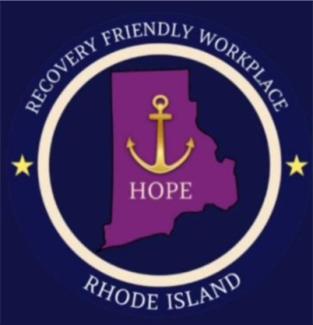
Rhode Island's Recovery Friendly Workplace (RFW) Program
RFW is an initiative from the Governor's Office and the Division of Behavioral Health at BHDDH. The program provides guidance, training, and technical support to address supporting employees in recovery, those that may be struggling with substance use and/or mental health conditions, and job placement for individuals in recovery looking for careers. This support is provided to employers at no cost.
To learn more, call 401-462-1886 or contact State Program Director Jeffrey Wolfsberg at Jeffrey.Wolfsberg@bhddh.ri.gov
Quickly Find a Mental Health or Substance Use Provider
Use this Substance Abuse Mental Health Services Administration (SAMHSA) interactive map to find a mental health and/or substance use provider in Rhode Island or anywhere in the United States.
The FindTreatment.gov site is also helpful in locating local facilities or those in a different state.
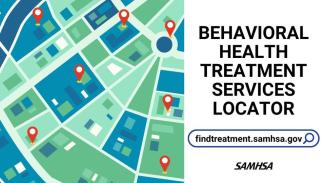
Healthy Transitions Coping Cards
These coping cards are designed to help parents, caregivers, school, and community members, to provide coping strategies for young people who are experiencing emotional distress. They include coping statements which youth can use when feeling overwhelmed, anxious, fearful, panicked, and/or other emotions.
Wellness Coping Statement Cards- English
Wellness Coping Statement Cards - Portuguese
Wellness Coping Statement Cards- Spanish
Did You Know?
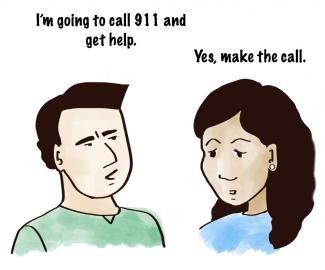
Rhode Island has a Good Samaritan Law. That means, if you witness an overdose and call 911, Rhode Island’s Good Samaritan Law protects YOU. See the flyer here and if you are able, print and post to get the word out!
SBIRT Guidebook for Implementation
This guidebook provides an outline of Rhode Island’s Screening, Brief Intervention and Referral to Treatment (RI-SBIRT) program and its implementation processes from 2016 to 2021.
“SBIRT in Rhode Island: A Guidebook for Implementation in Rhode Island Healthcare Settings” was designed to help providers efficiently implement the SBIRT model of substance use disorder screening, identification, and treatment in their healthcare setting. It includes basic definitions, printable screening tools and helpful resources, workflow examples, and feedback and advice from RI-SBIRT providers and staff.
For more information, contact Catherine Hunter at catherine.hunter@bhddh.ri.gov
Updated Guide Books for 14 – 25 Year Old’s
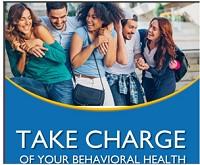
This Guidebook provides a roadmap to help 14 – 25 year old's in navigating the sometimes complex system of behavioral healthcare services. There are many resources listed to guide you, should you need them. "Take Charge of Your Behavioral Health: A Guide for Transition Aged Youth (TAY) in Rhode Island," revised November 2022 was created for youth and young adults with a great deal of community input and the on-line version was updated October 2023. Each page is designed to stand alone so you can download and print the entire document or just select those pages of interest to you.
Online PDFs and hard copies are available in English and Spanish. To request free hard copies, please contact Denise Achin at 401-462-0421 or by email at Denise.Achin@bhddh.ri.gov.
Guidebook in English-2024
Guidebook en Español- 2024
The RI Behavioral Health Open Bed System
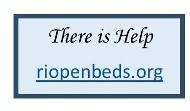
In partnership with RI Quality Institute, BHDDH maintains ribhopenbeds.org to provide public information about bed availability for mental health and substance use disorder services.
The goal of the RI Behavioral Health Open Beds (RI BHOB) system is to efficiently collect and distribute bed availability information, reduce patient delays in accessing appropriate emergency, provide crisis stabilization, and recovery services. Currently, RI BHOB is the only way to view Recovery House bed availability and Substance Use Residential Treatment bed availability electronically.
Visit RI BHOB to view available beds at RI's facilities at ribhopenbeds.org
24-Hour Buprenorphine
Rhode Island’s Buprenorphine Hotline is for people with moderate to severe opioid use disorder (OUD).
The Buprenorphine Hotline – 401.606.5456 -- offers 24-hour telehealth access for patients who are seeking initiation of buprenorphine (also referred to as Suboxone®) treatment. This hotline gives people the opportunity to get a health assessment by a Drug Addiction Treatment Act of 2000 (DATA 2000) waivered healthcare provider, a prescription for buprenorphine for unobserved home induction (if appropriate), and linkage to a Rhode Island Center of Excellence or office-based buprenorphine provider for maintenance treatment.
The hotline is being managed through a partnership between Brown Emergency Medicine, Lifespan Recovery Center, and the Rhode Island Hospital Center for Primary Care Recovery Clinic, with support from the Rhode Island Department of Health (RIDOH) and the Rhode Island Department of Behavioral Health, Developmental Disabilities, and Hospitals (BHDDH).
For more information about recovery, harm reduction, and treatment resources available during the COVID-19 pandemic, go to PreventOverdoseRI.org’s COVID-19 webpage or download this printable flyer.
Words Matter

Most people know that how we use words truly matters.
"Words Matter" uses person-first language when describing individuals who have mental health issues, substance use conditions, developmental and/or intellectual disabilities, or preferences on sexual orientation and gender identity.
These general tips emphasize the person first (not their condition) and promotes dignity and respect for all. These recommendations are intended to make it easier to talk with people, write about them, and share their stories. This is simply a guide; when you are not sure which word or phrase to use, it is best to simply ask.
Click here to access "Words Matter."